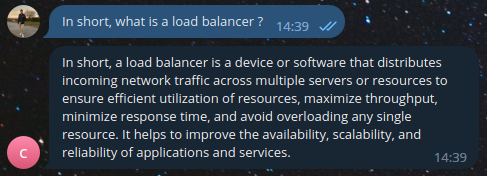Reflexes for Success: How Adopting Progress Helps You Stay Ahead
Table of Contents
The habits for success are not in your routine, but in your workflow #
The technologies we are using daily are all surprisingly recent, but they usually took some time to take off, and to be used efficiently.
Incorporating voluntarily the latest revolutionary technologies in your spontaneous habits could give you an unfair advantage against people who choose for the technologies to be battle tested for some time.
People often talk about how meditating, doing exercise, healthy eating habits, and all the likes are very much important for their productivity. When it’s indeed primordial that your mental and physical wellbeing is being taken care of.
But when doing that task, the one using the right tool is the one with an edge. Imagine doing researches without a search-engine, marketing without any analytics, etc…
Tech for productivity #
When the first computers came out, going against your habits and taking the time to use it would have ended up giving you an edge. People would all end up using this tech, but you learned it first, it was incorporated in your mind first, it became a natural extension of you. No matter what was your original workflow, it probably morphed and became enhanced.
The same thing happened with the internet. Nowadays, almost everyone has the reflex of searching for stuff on the internet. When you need an information, it seems natural to open a tab, and ask your question to Google. It’s fast, it doesn’t judge the fact you didn’t know something others would consider basic, and it seems to know everything.
As a developer, taking the time to learn how to use efficiently the key features of my development environment (IDE) can give me a huge productivity boost. Learning the 20% most useful shortcuts and functionality will, end up in a huge boost, since I will use these 80% of the time.
With Large Language Models exploding in popularity as of the end of 2022, our habits might again end up morphing, the most efficient way to do a quick search, to produce some piece of text, a summary, etc… We have to adapt to change, and adapting fast, is how you get an edge in the long run.
Voluntarily building reflexes #
In the book atomic habits, one of the lesson the is highlighted is: To form habits, you must make them obvious, attractive, easy, and satisfying.
Maybe we cannot achieve all of them directly, but work step by step in the direction of making tools part of your daily usage.
In this post, I wanted to center the idea on AI, LLM, and OpenAI’s GPT models. As of March 2023, ChatGPT’s interface is clunky, laggy, forgets about your conversation’s history, slow to respond, etc… Aspects that can make one too lazy to query the tool here and there.
To make up for that, there’s a ton of project that aim to recreate a ChatGPT interface, and make the experience way easier.
One step further that made the difference for me, was when I ran into a simple implementation of a telegram bot for ChatGPT. You can easily self-host it, use your OpenAI API key (which will probably end up costing less than a subscription to ChatGPT plus) and use it easily.
Now, whenever I have a question I would find myself googling in the past, I just open telegram, send a quick text, or even a vocal message which is transcribed by the Whisper model, then I quickly get a short version of the info I needed:

No need to go through googling, opening multiple website with optimized SEO article which contains 20x more info than what I need. I just made searching information way easier, funnier, and reduced the friction.
I absolutely loved this article from Simon Willison about how for us, software engineers, AI is allowing us to be more ambitious about our project, and that our capabilities are now enhanced. To make everything frictionless is an important part of becoming more capable.
